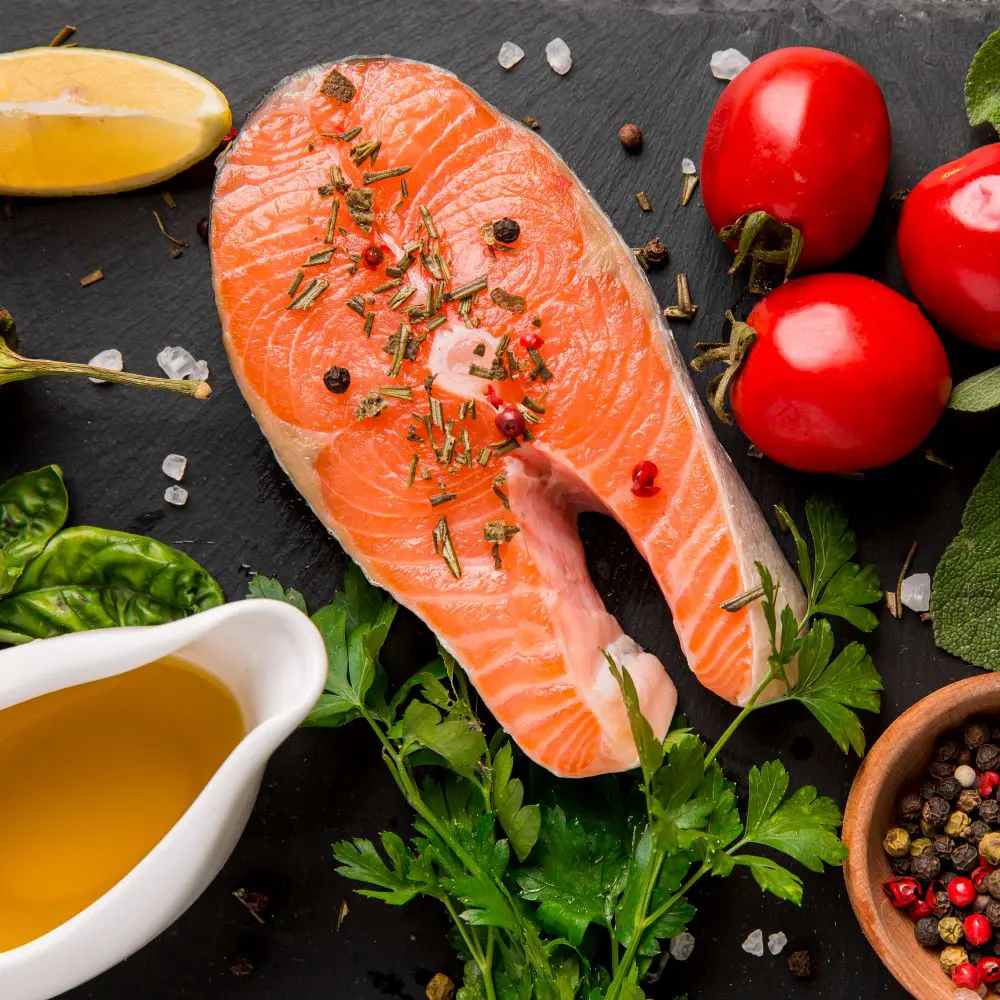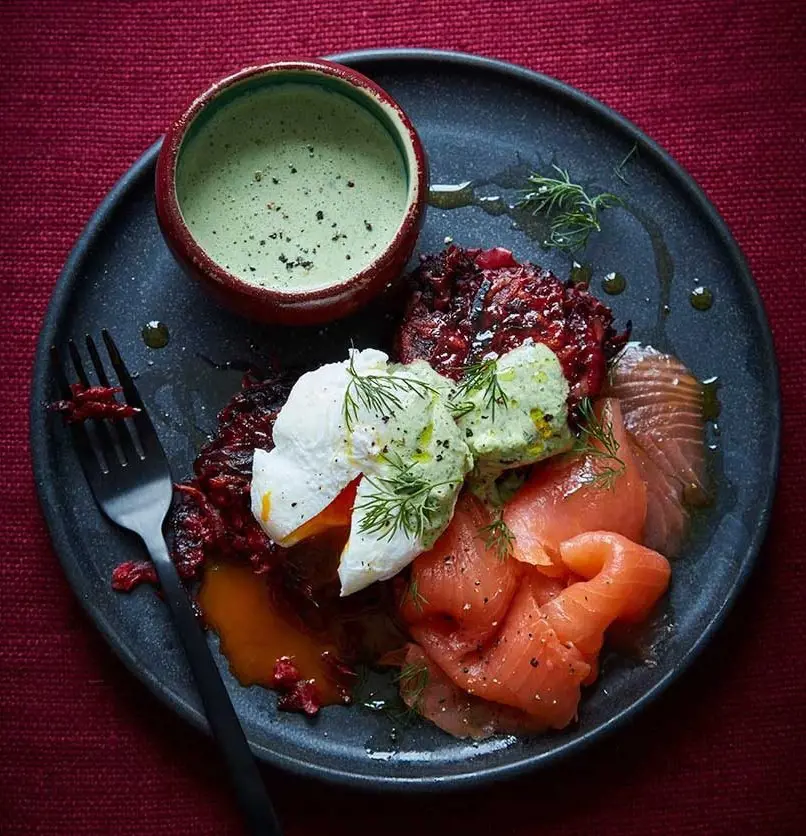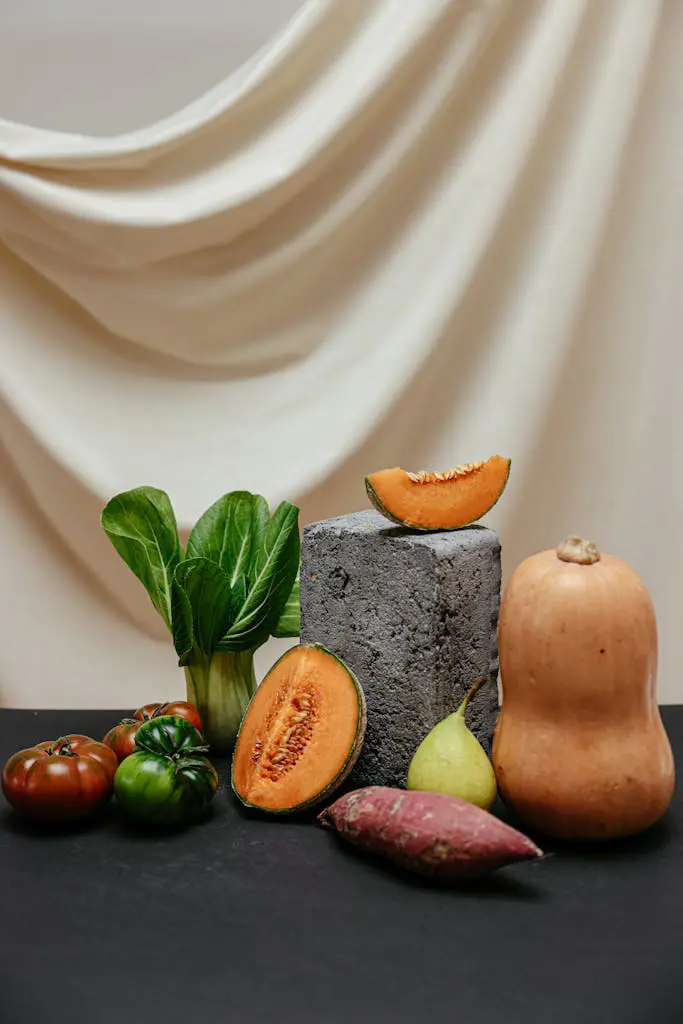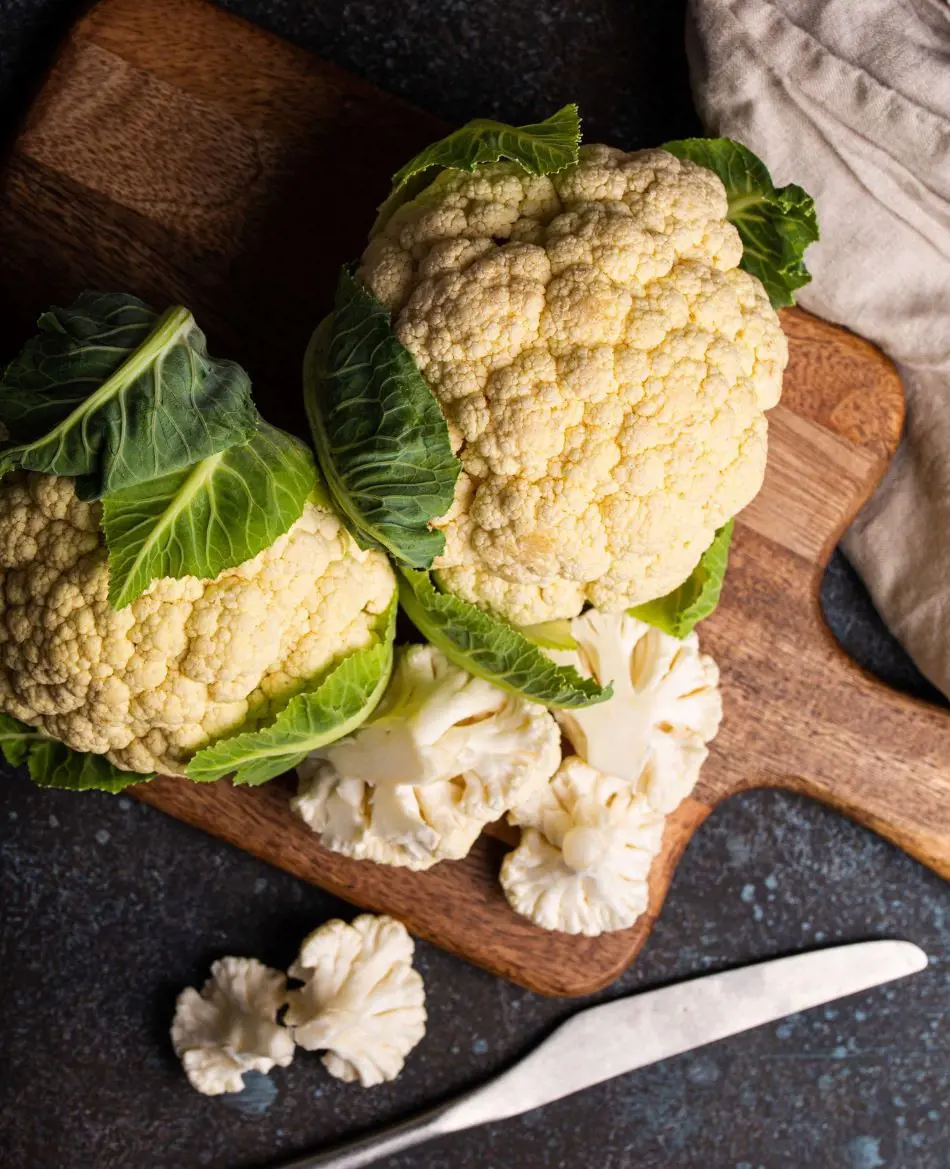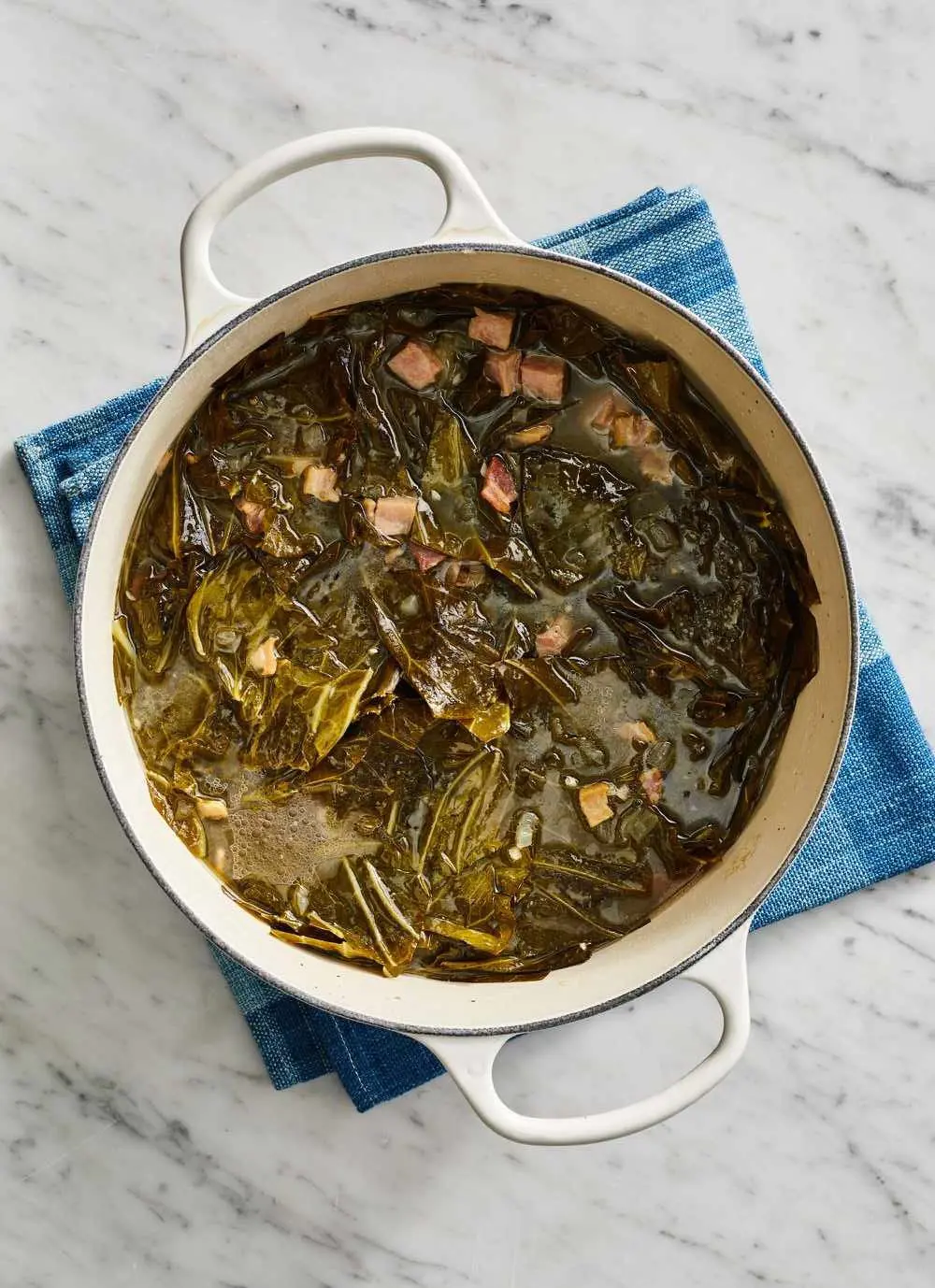15 Purslane Benefits and Nutrition
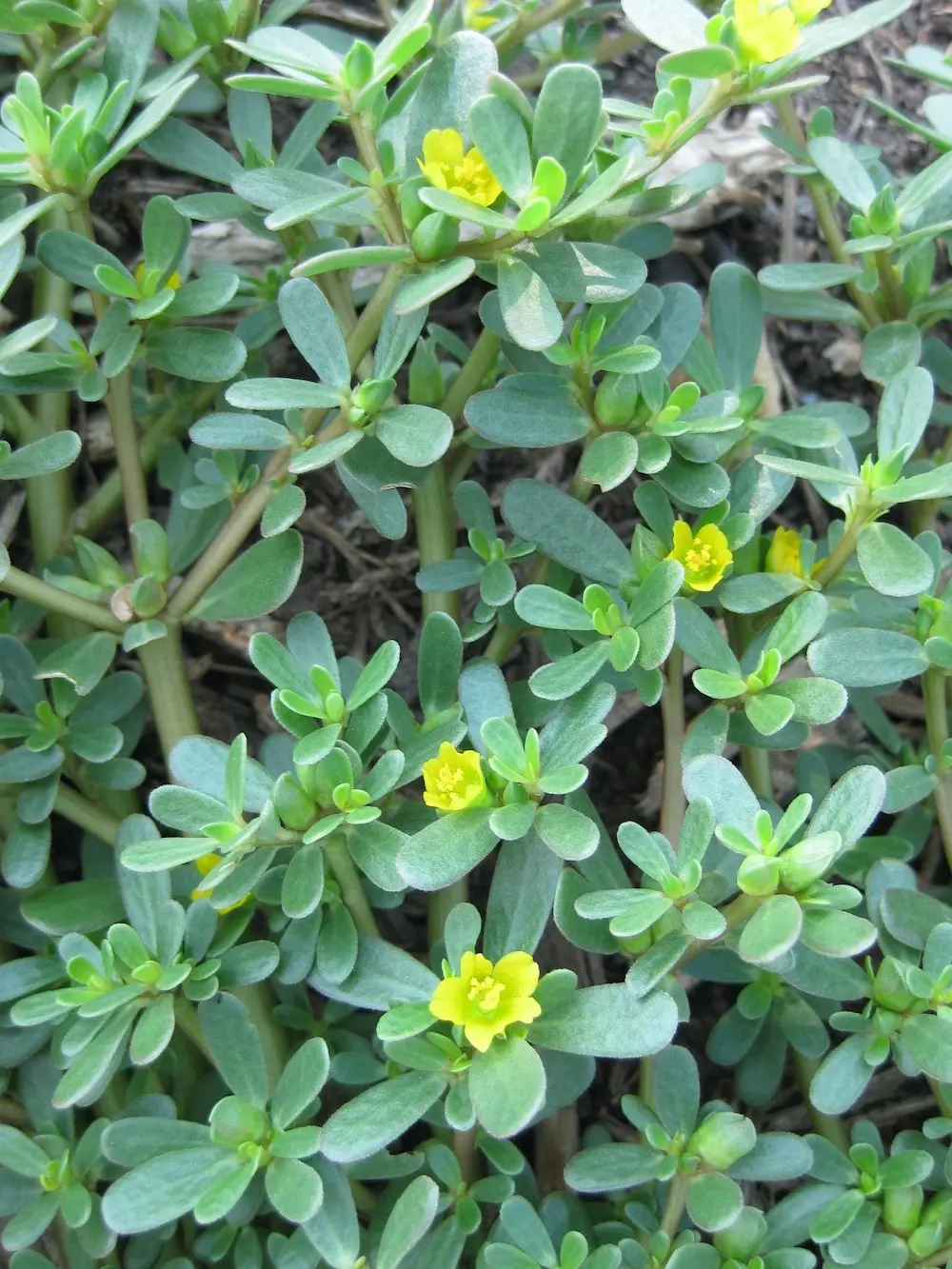
Purslane is an edible "weed" that produces a leafy, green vegetable. It is considered one of the most nutrient-rich foods on earth. Many cultures treat this plant as a weed, however, this is a common vegetable that is beneficial in many aspects.
You may not know, that purslane aka Portulaca oleracea contains five times higher omega-3 fatty acids than spinach. If you are new to this plant and are wondering if you should add it to your diet, the following health benefits with definitely convince you.
1. Rich in Omega-3 Fatty Acids
Purslane is considered one of the best plant sources of omega-3 fatty acids, which are beneficial for heart health. These fatty acids are often called good cholesterol which reduces triglyceride, a type of fat in our blood, thereby reducing the risk of developing an irregular heartbeat (arrhythmias).
There will be less chance of heart attack and stroke if you consume this plant. Since this vegetable can support heart-related issues best, why not include this in a regular diet?
2. Anti-Inflammatory Properties
This plant contains anti-inflammatory compounds such as omega-3 fatty acids that help reduce inflammation. As per the study, the anti-inflammatory properties of this plant literally help to lower our blood pressure, boost our mental health and cognitive function, and relieve other chronic issues.
It is an absolute remedy if you are suffering from body pain and any kind of wound. It helps in quick healing thereby giving less chance to further inflammation.
3. Diabetes Management

Purslane can assist in regulating blood sugar levels due to its low glycemic index and high fiber content. Yes, you heard that right, it's a wonderful option if you desire to control your blood sugar level.
As per the study, the consumption of purslane seeds for about 5 weeks in patients with type 2 diabetes is likely to improve their anthropometric measures. You can consume this plant in a regular diet to make your blood sugar balanced.
4. High in Antioxidants
This plant contains a good amount of antioxidants. With the availability of antioxidants like vitamins A, C, and E, as well as beta-carotene, this plant helps combat oxidative stress and inflammation.
Actually, the antioxidants search for free radicals from the body cells and prevent or reduce the damage caused by oxidation. Likewise, the protective effect of antioxidants can be felt with each intake of this vegetable.
If you want a good source of antioxidants for your body, then go for a purslane diet.
5. Digestive Health
Purslane has a high fiber content that promotes healthy digestion and prevents constipation. As per the John Hopkins Medicine, about 4 million people in the United States have frequent constipation causing millions of dollars spent on laxatives.
Well, this is a serious issue, that needs to be addressed immediately. Besides medicinal treatment, a small change in your diet also plays a major role in constipation.
Purslane, which is high in fiber offers a good relief from constipation by increasing the size of stool and softening it.
6. Bone Health

Purslane is rich in calcium and magnesium, which are essential for maintaining strong bones. Actually, it assists in producing bone-building cells and controls a hormone that helps your body use calcium.
Magnesium present in this weed is considered good for allowing your bones to soak up calcium more readily. Isn't that a wonderful health benefit?
7. Hydration
This plant includes a high water content that helps keep the body hydrated. Dehydration often leads to dizziness, headache, rapid breathing, and muscle cramps, so purslane can be the best option to overcome this problem.
As per the study, up to 60% of a human's body should be covered with water. However, many of us forget to drink sufficient water. In such a condition, it is definitely a wise decision to include this vegetable in a regular diet.
8. Brain Health
As mentioned earlier, this plant contains a good amount of omega-3 fatty acids that are beneficial for cognitive function and may help protect against neurological disorders.
As per the research, omega-3s travel easily through the brain cell membrane thereby interacting with mood-related molecules inside the brain. They also contain anti-inflammatory actions that may assist relieve depression.
Actually, people suffering from depression or a mild decline in brain function are recommended to consider taking omega-3s from various food diets, as they may feel some improvements in their symptoms and brain activities. Hence, it is absolutely necessary to consume purslane to get the health benefits of omega-3 fatty acids.
9. Weight Management

This plant contains a low calorie and high nutrient content making it a perfect diet for weight management. You may do many workouts and survive on less food for a long time to manage your weight. Just include this weed in your diet and see the difference.
The low calorie content in this diet allows no fat accumulation in your body and the high nutritional content prevents you from the pang of hunger. So, it is recommended to eat this vegetable for a fit and healthy body weight.
10. Anti-Microbial
This plant contains compounds that have antimicrobial properties, which are necessary for fighting infections. These compounds kill microorganisms (microbicide) or stop their growth (bacteriostatic agent), thereby keeping the body protected from possible diseases.
So, incorporating purslane into your regular diet can definitely provide anti-microbial benefits, enhancing overall well-being.
11. Boosts Immunity
Purslanes or verdolagas are often rich in vitamin C and other antioxidants that help strengthen the immune system. Vitamin C helps in the overall immune system by repairing tissues whereas antioxidants help neutralize the molecules that cause damage to the cells.
For a strong and healthy immune system, it is necessary to include purslane in your diet. It can make your immune system strong thereby stopping you from falling sick frequently.
12. Anti-Cancer Properties
Some studies suggest that the antioxidants and omega-3 fatty acids present in purslane may assist in protecting against certain types of cancer. These components help track down free radicals and neutralize their harmful effects.
It keeps more of the body's cells healthy and less susceptible to becoming cancerous. Though cancer needs proper treatment, including this vegetable in your regular diet can reduce the cancer-causing agents in your body.
13. Skin Health

Antioxidants and vitamins present in purslane upgrade healthy skin and may assist in lowering the signs of aging. Actually, these compounds help fight free radicals and prevent oxidative stress, which can accelerate the aging process.
So, the regular intake of purslane-based products or incorporating it into your diet can contribute to youthful, radiant, and glowing skin.
14. Detoxification
Portulaca oleracea aka purslane acts as a natural detoxifier that helps to eradicate toxins from the body. Elimination of toxins from the body through various organs helps in maintaining proper health thereby reducing the chances of diseases.
So, this vegetable can be the best option if you want a detoxifier in your diet. You can simply include this in your regular diet and see the difference.
15. Eye Health

Purslane is rich in beta-carotene and vitamin A, which are necessary for good vision. As per the research, these elements help to prevent night blindness, and it is also a proven prevention for age-related macular degeneration (AMD) and dry eye syndrome.
Since the plant is beneficial for proper vision as well as for the protection of eye-related issues, it is definitely a better idea to include this in a regular diet.
Nutrition in Purslane
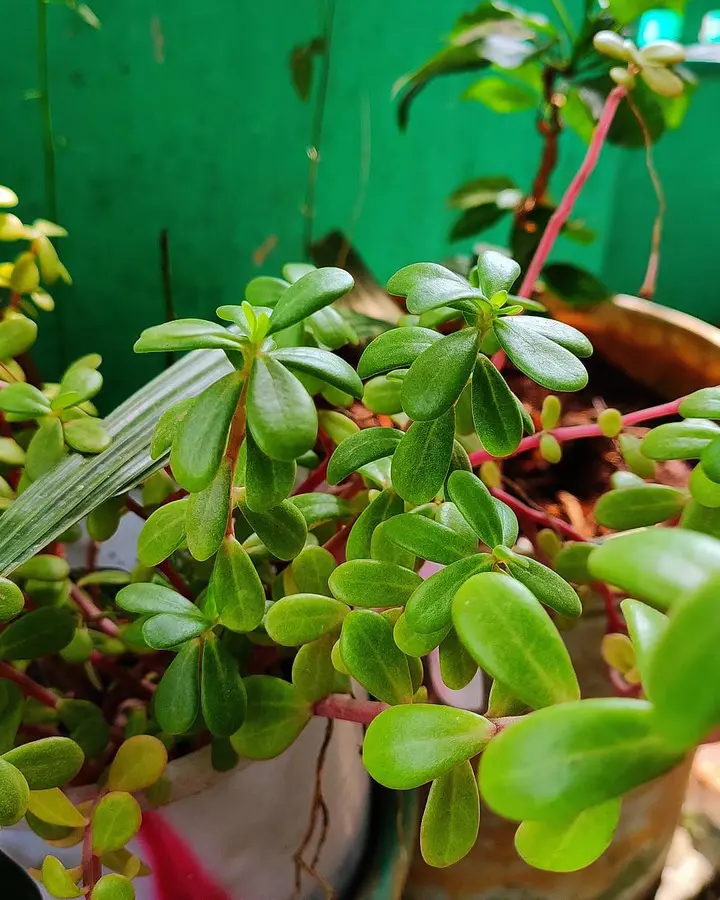
Purslane aka common weed is highly nutritious and offers a huge range of vitamins, minerals, and other beneficial compounds. About 100 grams (about 3.5 ounces) of purslane has the following nutrition, please have a look:
- Calorie: 16kcal
- Water: 93.9 g
- Protein: 1.3 g
- Carbohydrate: 3.4 g
- Vitamin A: 1320 IU (27% of the Daily Value, DV)
- Vitamin C: 21 mg (35% of DV)
- Vitamin E: 12.2 mg (61% of DV)
- Vitamin K: 19.0 µg (24% of DV)
- Folate: 12 µg (3% of DV)
- Calcium: 65 mg (7% of DV)
- Iron: 1.99 mg (11% of DV)
- Magnesium: 68 mg (17% of DV)
- Phosphorus: 44 mg (4% of DV)
- Potassium: 494 mg (14% of DV)
- Sodium: 45 mg (2% of DV)
Calorie
It contains 16 kcal, making it an excellent addition to weight-loss diets due to its low-calorie content. Not just in weight management, low calorie also ensures sound sleep and proper energy in your body.
Water
It contains about 93.9 grams of water leading to a healthy and hydrated body. Actually, a sufficient amount of water is necessary in the body in order to keep your kidneys functioning properly.
Protein
It contains about 1.3 grams of protein that is necessary for the growth and development of cells and tissues. Further, protein functions in the structural support, biochemical catalysts, hormones, enzymes, building blocks, and initiators of cellular death.
Carbohydrate
It contains 3.4 grams of carbohydrates which are necessary for our body for instant energy. Besides being a good source of energy, it can help fuel our brain, kidneys, heart muscles, and central nervous system.
Vitamins
It contains 1320 IU (27% of the Daily Value, DV) of Vitamin A, 21 mg (35% of DV) of Vitamin C, 12.2 mg (61% of DV) of Vitamin E, 0.07 mg (3% of DV) of Vitamin B6, 19.0 µg (24% of DV) of Vitamin K and 12 µg (3% of DV) of Folate. These vitamins are considered body-protective nutrients.
Minerals
Similarly, this plant contains 65 mg (7% of DV) of calcium, 68 mg (17% of DV) of magnesium, and 45 mg (2% of DV) of sodium. Actually, these minerals help to build strong bones and teeth and also turn the food we eat into energy.
Precuations
Despite the fact that purslane is highly nutritious and generally safe for consumption, we need to consider some precautions before consumption:
1. This plant is rich in oxalates, which can result in the formation of kidney stones in susceptible individuals. Also, doctors often recommend a moderate consumption of purslane to people prone to kidney stones.
2. If you are eating wild purslane, then you should ensure it has not been exposed to pesticides, herbicides, or pollutants. Also, wash thoroughly before eating.
3. Although it is occasional, some people may be allergic to this plant. If you experience any allergic reactions (itching, swelling, or difficulty breathing) while eating then discontinue the consumption and visit a doctor.
4. This vegetable may interact with certain medications, especially those affecting blood clotting due to its vitamin K content.
5. There is limited information on the safety of purslane during pregnancy and breastfeeding. So, it's better to consult a healthcare provider before consuming it in large quantities.
6. As with any food, consuming purslane in large amounts can lead to digestive issues like stomach upset or diarrhea. So have it in a limit.
Recent posts
Nutrition
Nutrition
Licorice Root: Benefits And Uses
You can spell it liquorice or licorice; this herb or root has been in use for centuries in most medicinal applications, as a natural sweetener and to enhance flavors. Regarding its origins, it comes from the root of the "Glycyrrhiza galbre" plant and...
Nutrition
Is Salmon Good For You? Nutritional Facts and Benefits
Salmon fish is a staple diet throughout the world, popular as a super food for its nutrients. Whether savored in sushi, poached, grilled, roasted, or pan-fried, salmon offers minerals and vitamins that contribute to healthy bodily functions. In addit...
Nutrition
25 Smoked Salmon Recipes That You Will Enjoy
Salmon is a silver-colored fish that is loaded with many nutrients, vitamins, and omega-3 fatty acids. Smoked Salmon is better for improving your health and reducing the risk of cancer, heart-related diseases, fights inflammation, reduces anxiety and...
Nutrition
Are Sausages Healthy? Nutrition And Health Benefits
Sausages are tasty in an addictive way, making them one of the most popular foods worldwide. You may have enjoyed this convenient food often, whether on a bun with mustard or grilled on a barbecue, the simple preparation methods are what makes its co...
Nutrition
20 Vegetables That Are Rich In Iron
Iron is essential for our bodies to function well. When we don't get enough iron, we often feel weak and tired. It's important to address iron deficiency early by eating the right foods. Fortunately, many vegetables are rich in iron and can help prev...
Nutrition
15 Cauliflower Nutrition Facts And Health Benefits
Cauliflower, a cruciferous vegetable, resembles a white variation of its relative, broccoli. Like broccoli, it has closely bunched florets attached to a thick core, often surrounded by a few leaves. While white is the most common color, cauliflower i...

